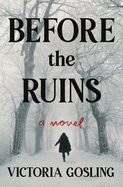National Book Award Winners
Hosted by Jason Reynolds, a two-time National Book Award finalist and current National Ambassador for Young People's Literature, the 71st annual National Book Awards ceremony was held virtually last night. The winners are:
Fiction: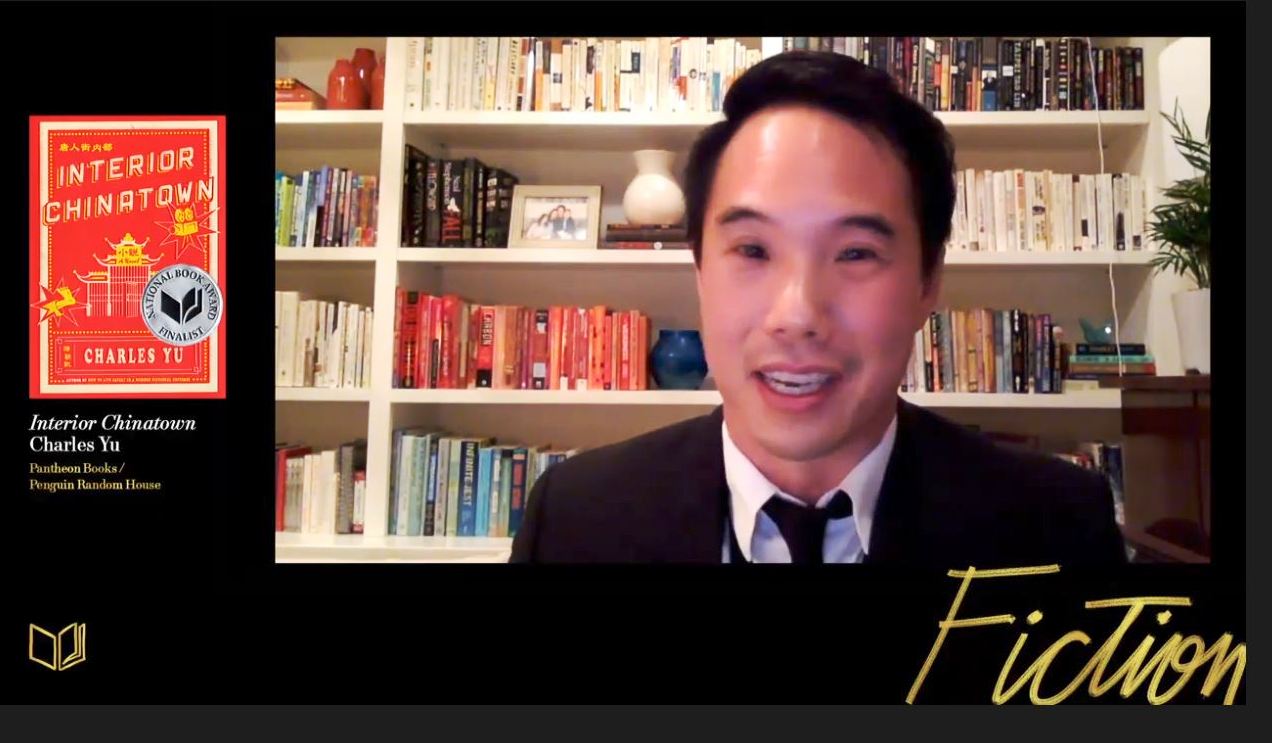
Nonfiction: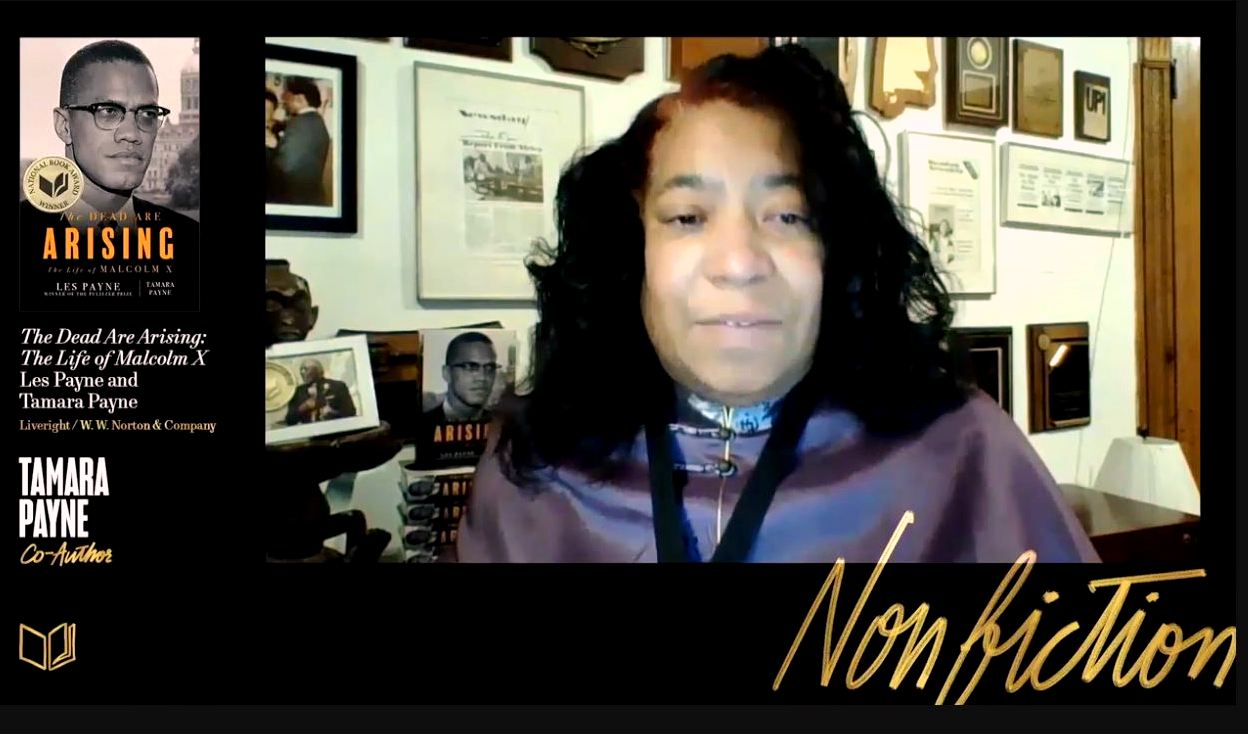
Poetry: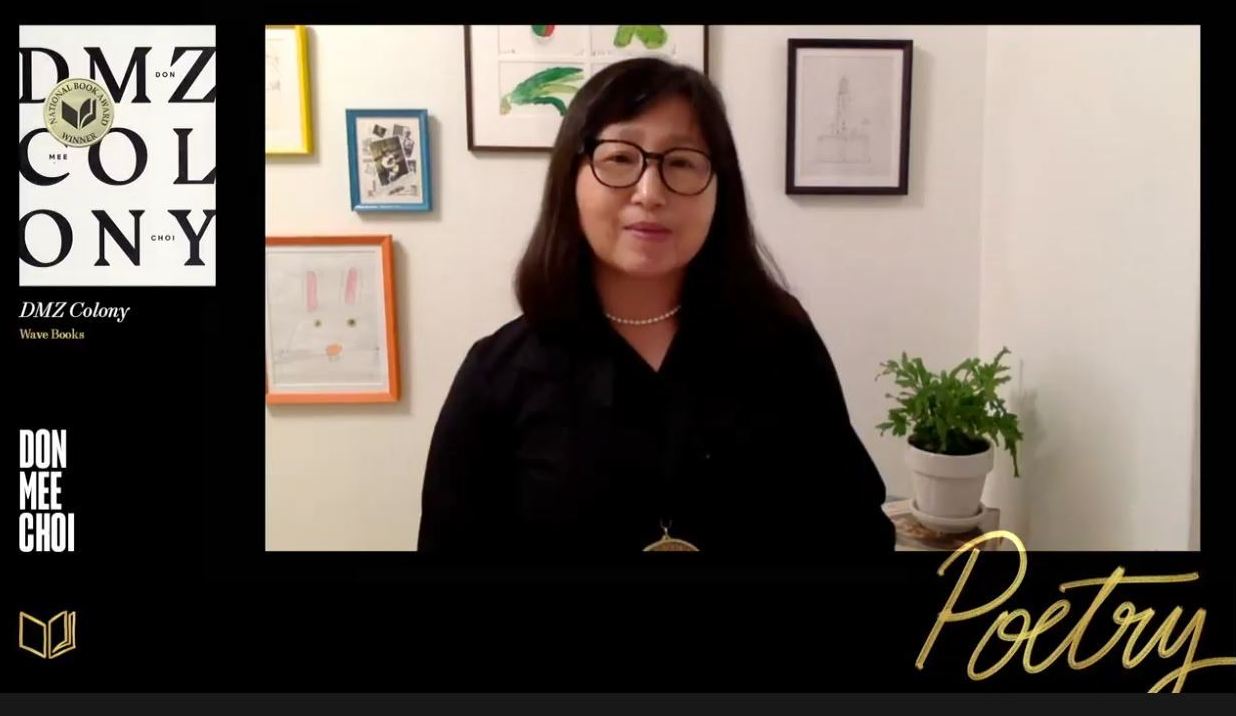
Translated Literature: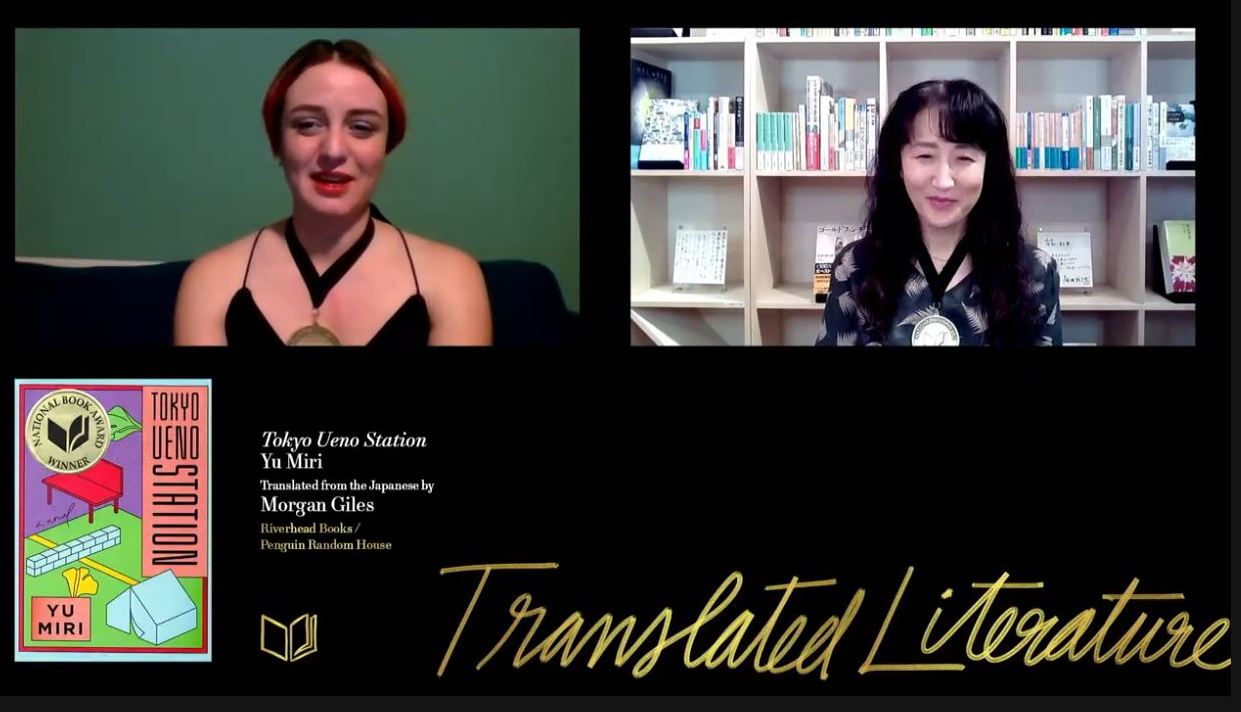
Giles: "Most importantly of all, I have to thank Yu Miri for trusting me, a first-time translator, with her very precious novel. Thank you to the people of Fukushima for being so gracious and helping me."
Young People's Literature: 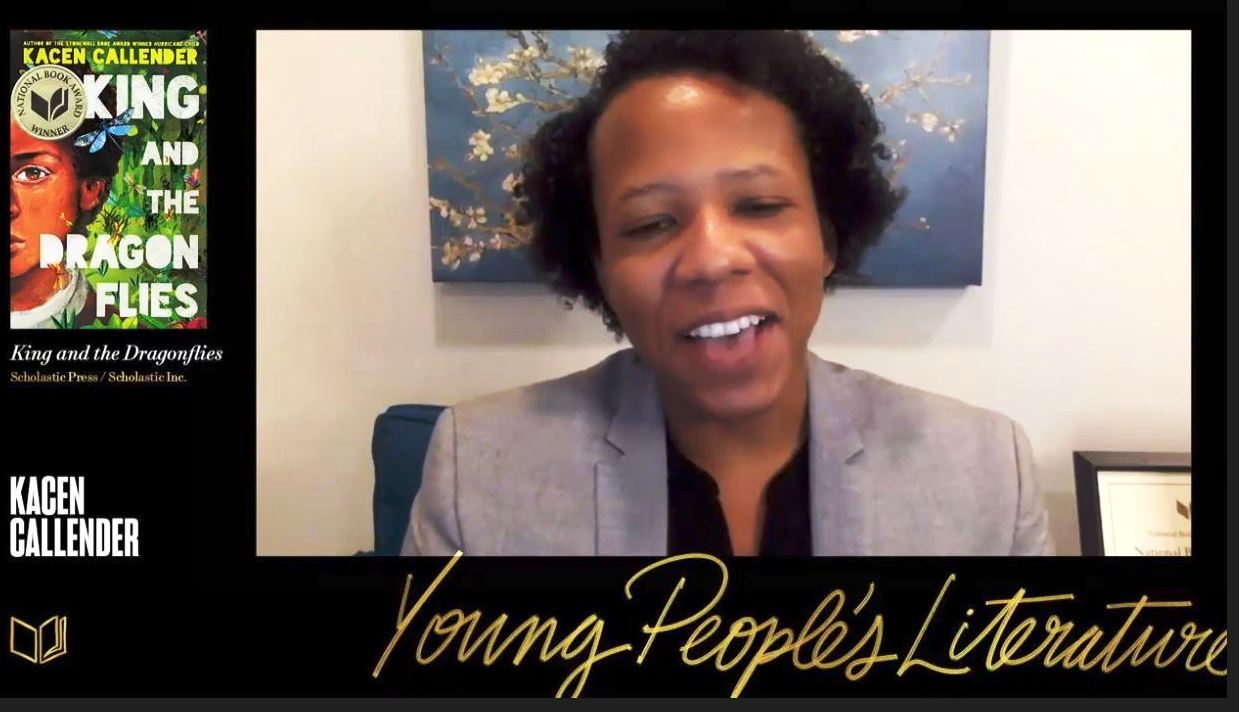
---
At the beginning of the program, previously announced lifetime achievement awards were presented to Carolyn Reidy, the Simon & Schuster president and CEO who died suddenly in May and was a longtime National Book Foundation board member, and to author Walter Mosley.
Reidy was remembered by authors including Walter Isaacson, Bob Woodward, Rachel Kushner, host Jason Reynolds as well as by former American Booksellers Association CEO Oren Teicher, the recipient of the same award last year.
Stephen Reidy accepted the Literarian Award for Outstanding Service to the American Literary Community on Carolyn Reidy's behalf, saying that his wife "did not have just a passion for books but that she had an intellectual curiosity in reading itself. In her words, in the magic that comes from the interaction between the author's words and the reader's mind. That intellectual curiosity drew Carolyn to an understanding of publishing as the promoter of that author-reader magic. And the result of promoting that magic was to Carolyn the expansion of the audience for books and reading. And that audience expansion was critical to Carolyn because she believed that authors and publishers through the power of the words and the books do not just reflect our culture, but they help to create it.
"Yes, you've heard Carolyn was a reader. Yes, you've heard Carolyn was a book person. But I think she was proudest of being a publisher because as she said, in publishing we are the shepherds to this gift of the book, doing everything we can to help bring the author's voice to the reader."
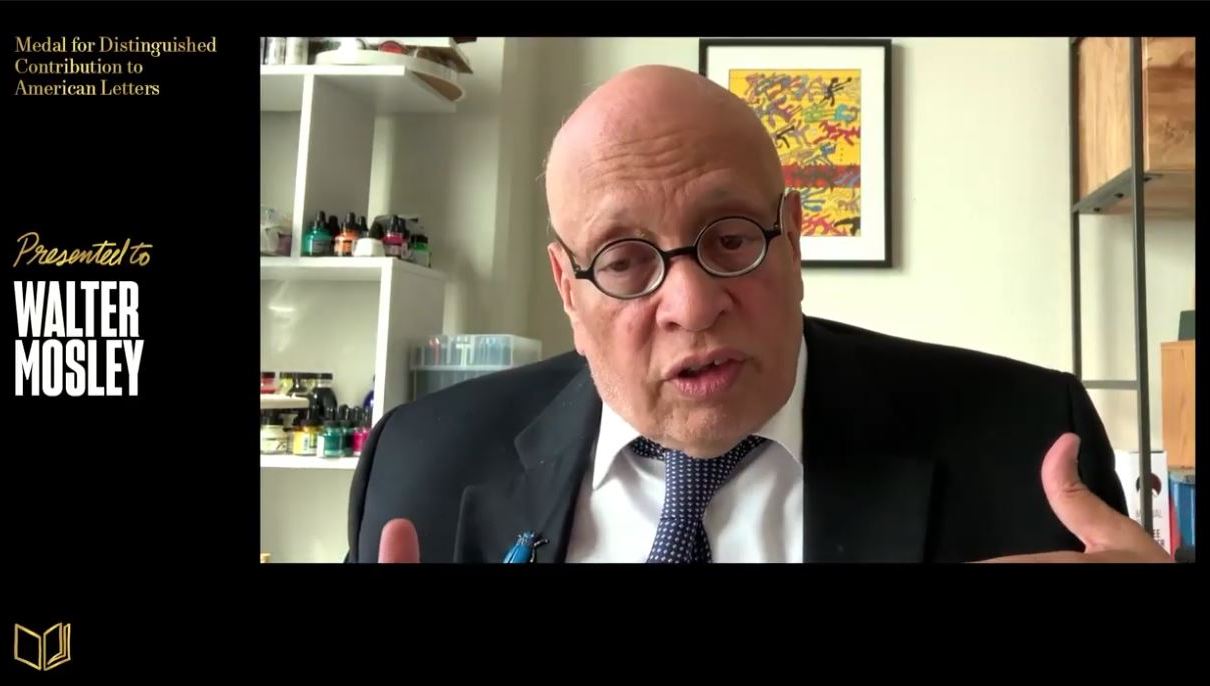
Saying there is "a great weight hanging over the reception of an award" by "the first black man to receive" the award, he continued: "We the people who are darker than blue have been here on this continent, in this storm, for 400 years. As a matter of course, we have been chained, beaten, raped, murdered, robbed of our names, our history and often even our dignity. This has been an ongoing process, an unending anguish... Is [my winning this award] a dying gasp or a first breath? Is today different from any other day over the past 400 years? I prefer to believe we are on the threshold of a new day, that this evening is one of 10,000 steps being taken to recognize the potential of this nation."
---
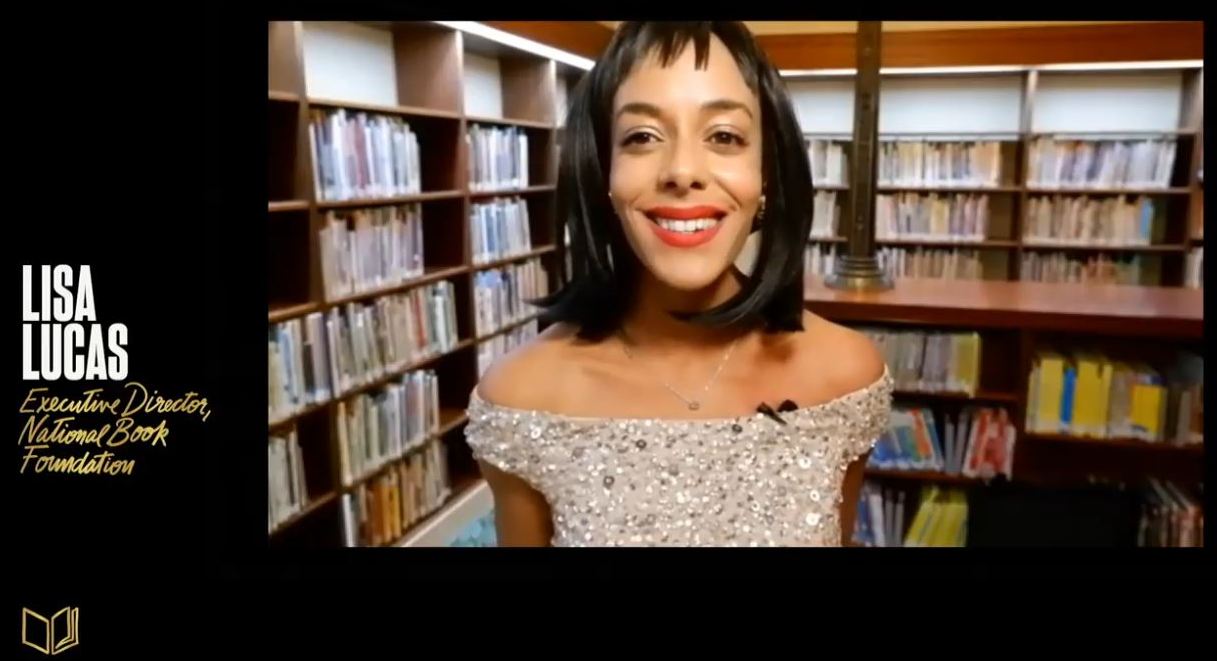
David Steinberger, chair of the National Book Foundation board, thanked Lucas for "five incredible years. We are so thankful to Lisa and so proud of her. We look forward to her great success as a publisher at Pantheon and Schocken." Addressing Lucas, he added that he will "miss our whirlwind weekly calls, your energy, your drive, your belief in what we could make happen, and the difference books could make in the world."
Promising not to cry, Lucas thanked and praised the Foundation staff and board. (Calling the board "the aunties and uncles of great change in this industry and my life," she said, "They didn't just give me the freedom to do my work; they gave me the tools.") She said she was so proud of the Foundation and all it has accomplished while at the same time setting out what more it can do.
Reflecting on this "challenging year," Lucas said that when the pandemic hit, the Foundation responded. "Instead of pulling back, we doubled down," placing even more books in public housing; creating more platforms for authors and readers to connect; and co-launching the Arts Emergency Literary Fund, which gave $3.5 million in relief funding to a variety of literary arts organizations.
"If we've learned one thing this year, it's that books and book people are resilient," she added. "We've all lost so much. We've lost so many luminaries. It's been a tough year. We've also seen sadly the very real limitations of the book business. We haven't been bold enough in our vision. We haven't been brave enough in our choices. We've haven't been confident enough in our values to make sure that this industry, this community, is as strong and inclusive and vibrant as it could be, as it should be, as it will be. The ways that this year has tested us proves that we are capable of imagining new solutions to unprecedented problems, and it's time to take that imagination and that fortitude and use it to address the problems that have always been with us. We can do better. We know that we can do better, and we must do better."









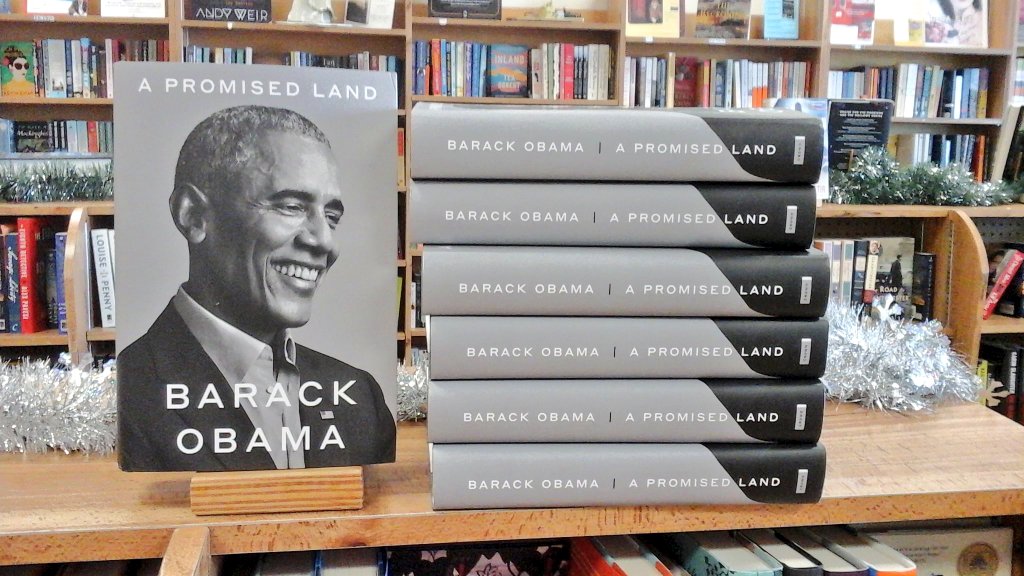

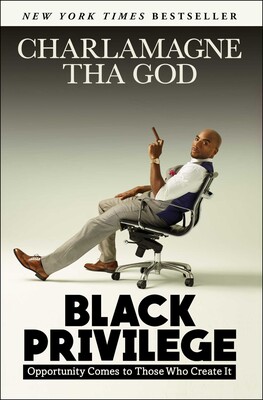 Atria Books is launching an imprint called Black Privilege Publishing, led by Charlamagne Tha God, author of Black Privilege and Shook One--both published by Atria--and the host of iHeartRadio's The Breakfast Club, host of a forthcoming weekly late-night show on Comedy Central, and founder of iHeart's Black Effect podcast network. Black Privilege Publishing said it will focus on "Black and brown narratives, rethinking traditional approaches to the industry, and engaging with the audiences Charlamagne knows best: cutting-edge, connected, and culturally aware."
Atria Books is launching an imprint called Black Privilege Publishing, led by Charlamagne Tha God, author of Black Privilege and Shook One--both published by Atria--and the host of iHeartRadio's The Breakfast Club, host of a forthcoming weekly late-night show on Comedy Central, and founder of iHeart's Black Effect podcast network. Black Privilege Publishing said it will focus on "Black and brown narratives, rethinking traditional approaches to the industry, and engaging with the audiences Charlamagne knows best: cutting-edge, connected, and culturally aware."

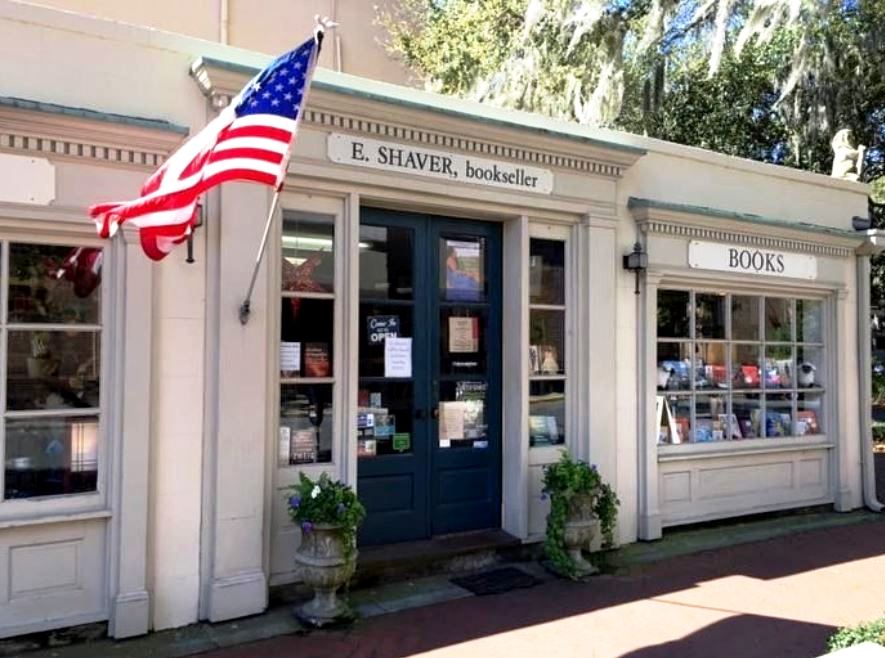 In Savannah, Ga.,
In Savannah, Ga., 
 Christine Mayall, owner of
Christine Mayall, owner of 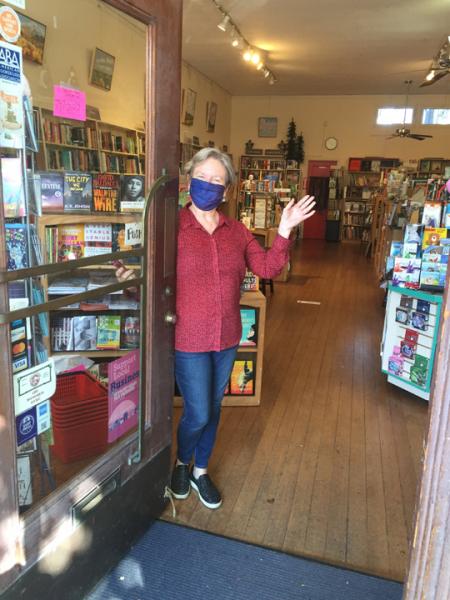 One thing she and her staff have found is that it is "very tiring" to have to keep an eye on everyone who enters the store to make sure they are wearing masks correctly and following rules. As booksellers, they are also used to being very hands-on with customers and working closely together as staff, which has been hard to learn to avoid.
One thing she and her staff have found is that it is "very tiring" to have to keep an eye on everyone who enters the store to make sure they are wearing masks correctly and following rules. As booksellers, they are also used to being very hands-on with customers and working closely together as staff, which has been hard to learn to avoid.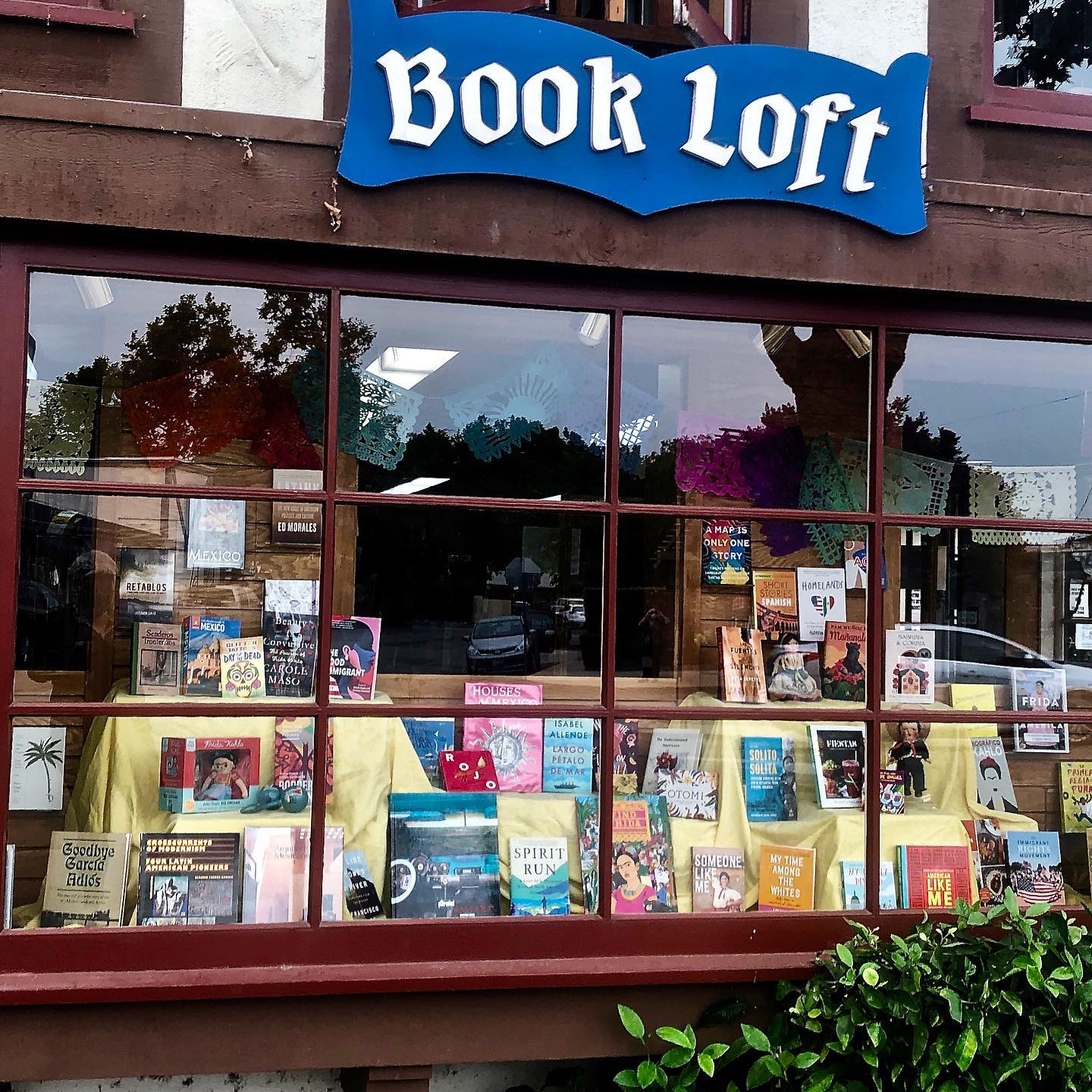 Congratulations to
Congratulations to 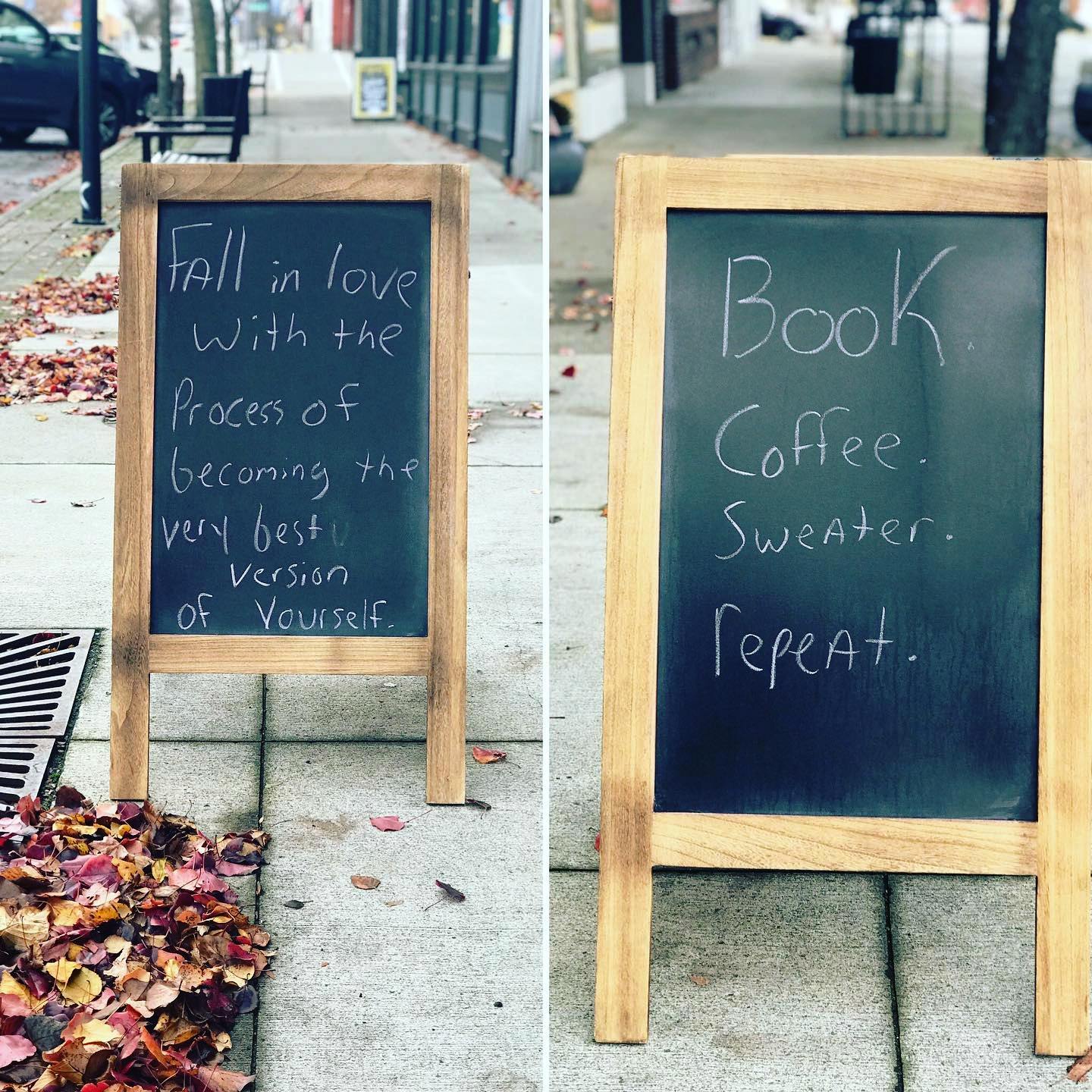 The
The  The Adventures of Camel Jeremy Eros
The Adventures of Camel Jeremy Eros The Mazur Kaplan Company and SK Global have a new significant first-look development pact, with an initial five books set for adaptation. The Mazur Kaplan principals are Paula Mazur and Mitchell Kaplan (owner of
The Mazur Kaplan Company and SK Global have a new significant first-look development pact, with an initial five books set for adaptation. The Mazur Kaplan principals are Paula Mazur and Mitchell Kaplan (owner of 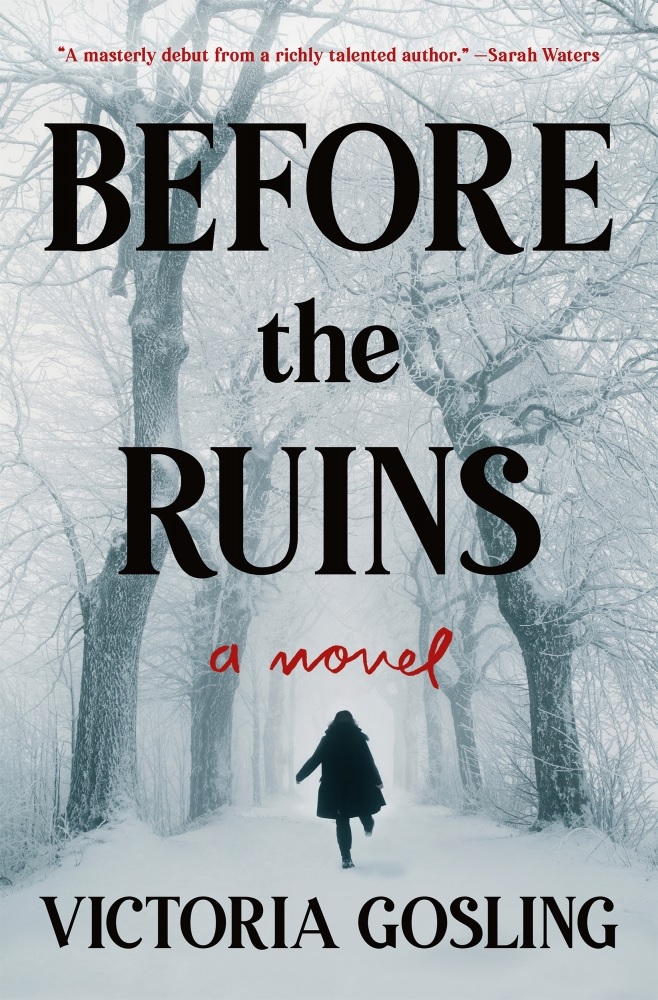 Ah, the English country house: the archetypal setting for a murder mystery. Before the Ruins, Victoria Gosling's whip-smart debut, delivers not only the dead body at the weekend gathering but also the howlingly bad weather, the haunting account of long-ago villainy and--what's this? Shield your eyes, Miss Marple: there's an act of copulation over by the mantelpiece!
Ah, the English country house: the archetypal setting for a murder mystery. Before the Ruins, Victoria Gosling's whip-smart debut, delivers not only the dead body at the weekend gathering but also the howlingly bad weather, the haunting account of long-ago villainy and--what's this? Shield your eyes, Miss Marple: there's an act of copulation over by the mantelpiece!